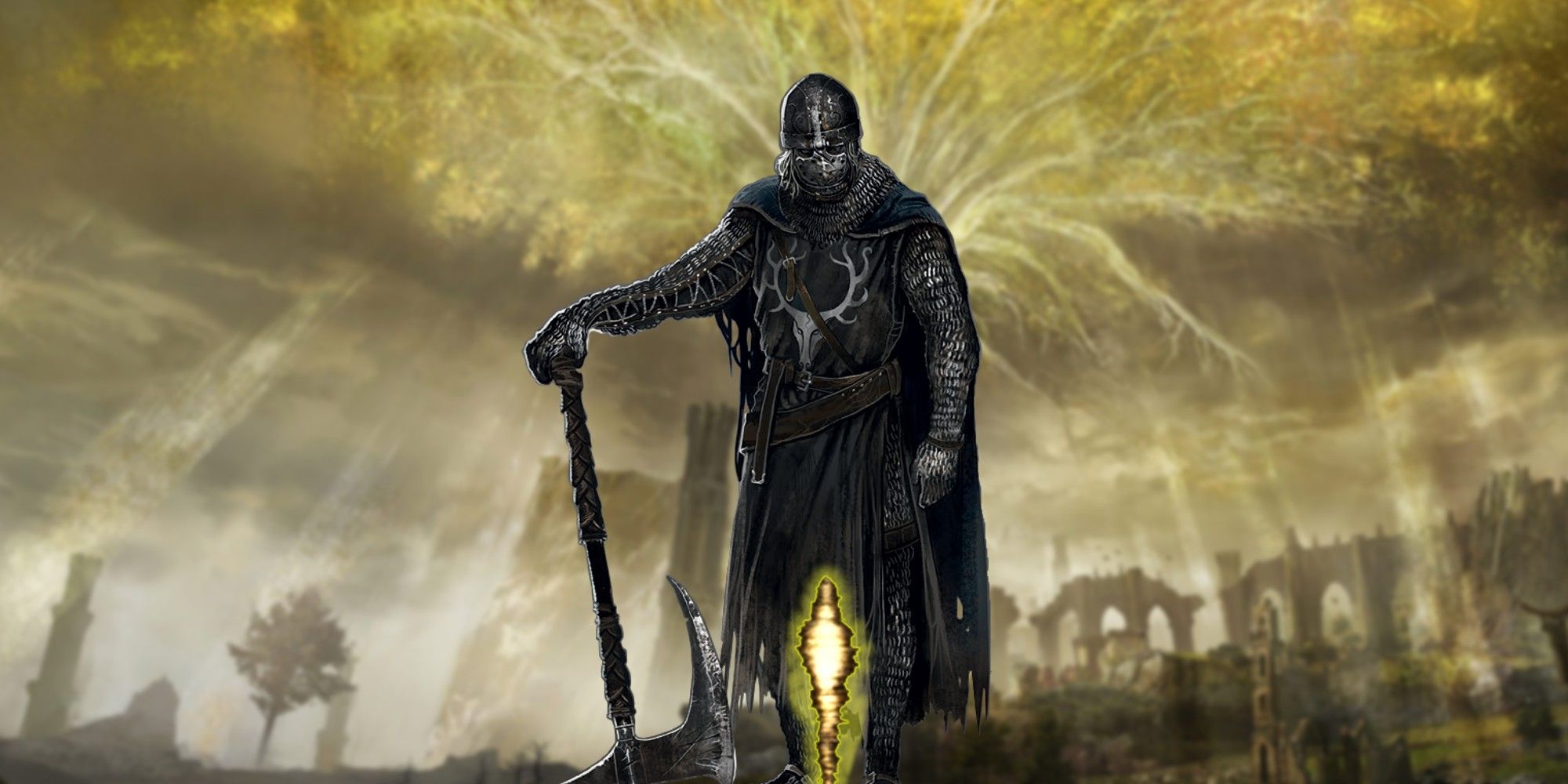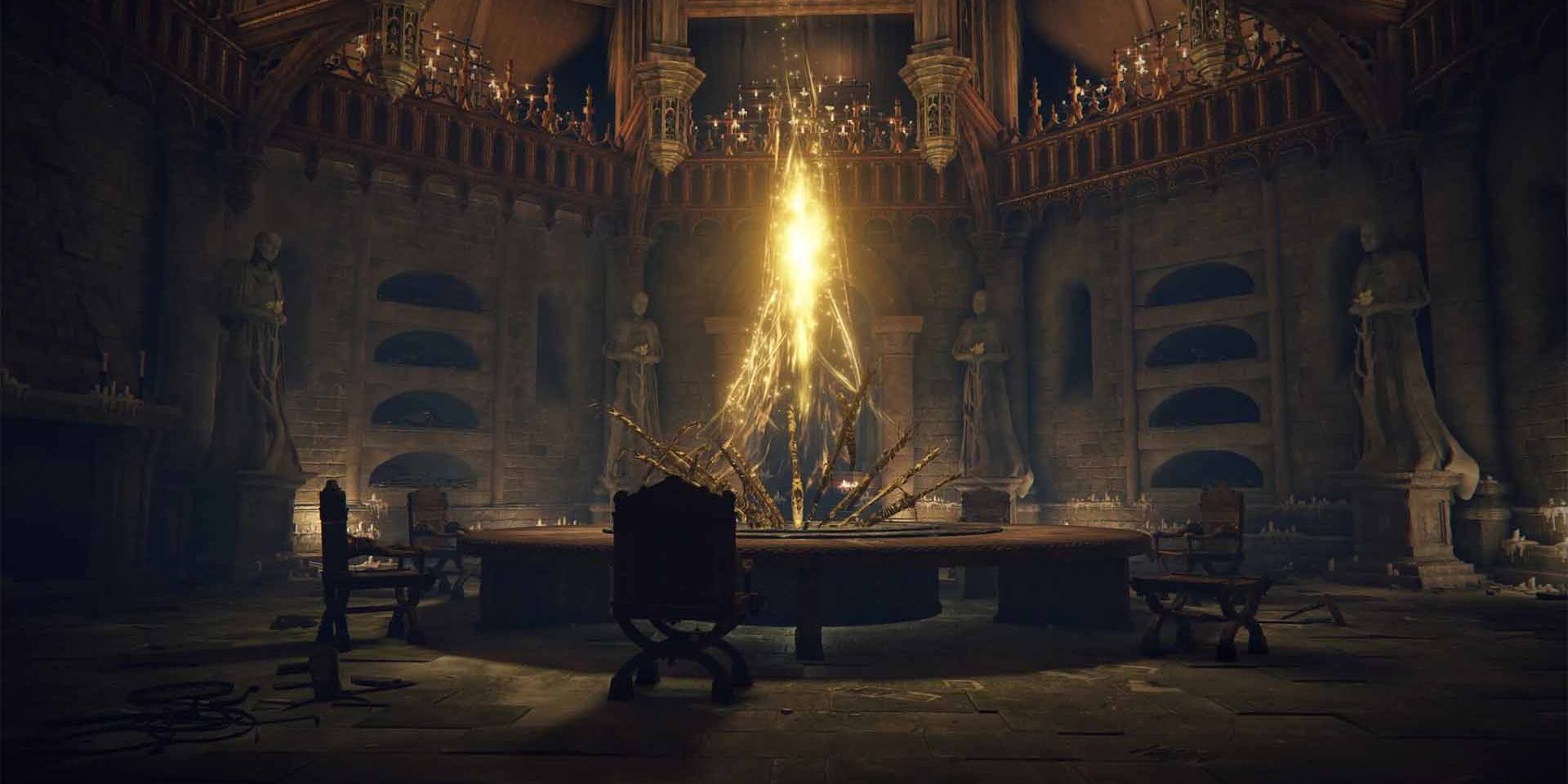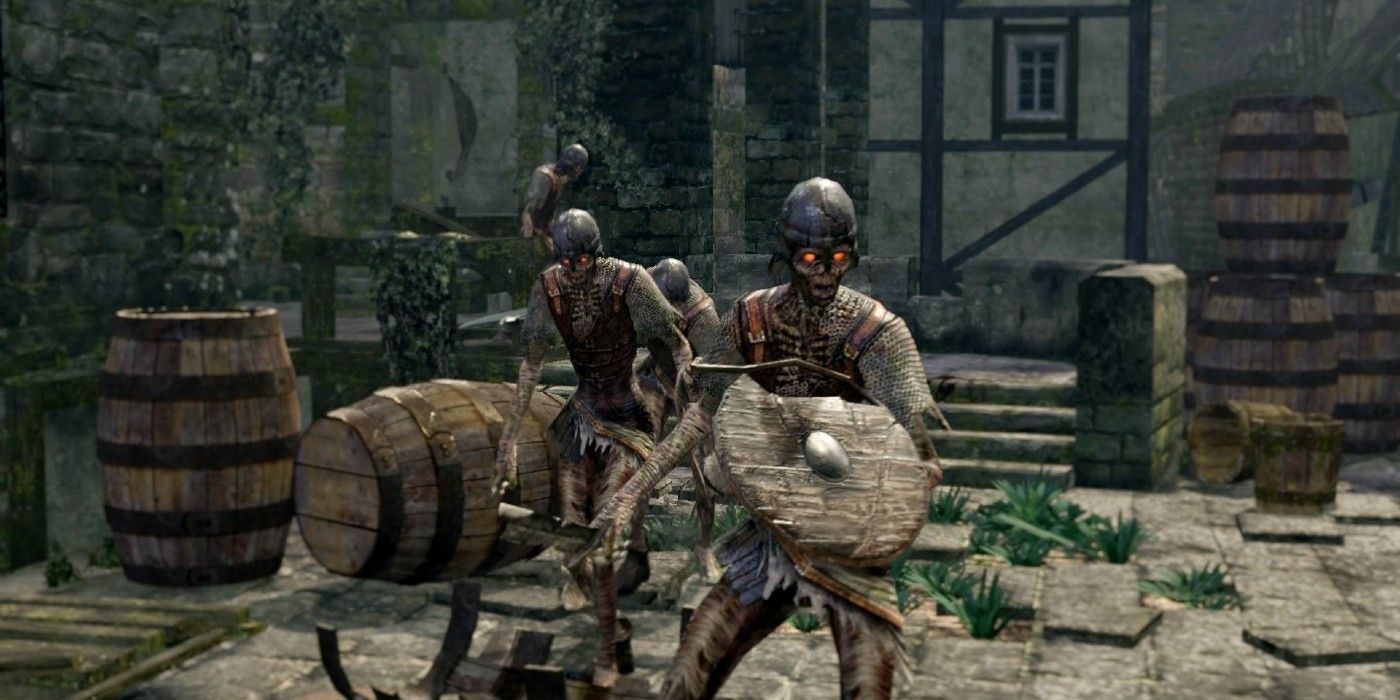Elden Ring introduces the concept of Grace early in the game as a central element of the world's lore, but it isn't the same as the Undead Curse in Dark Souls. In Elden Ring's setting of the Lands Between, Grace acts as a blessing from the Greater Will. Rather than being a replacement for the Undead Curse, Grace is guidance that - at least theoretically - offers a path to a peaceful end instead of the Undead Curse's promise of perpetual undeath as a Hollow without free will, consumed by madness once the humanity of the afflicted is gone.
With help from George R.R. Martin, Elden Ring introduces a world of dark fantasy with a struggle for power at the center of it. In true FromSoftware form, players take the role of one of the Tarnished, somebody whose Grace was taken away before being exiled from the Lands Between. Tarnished are called back by the Greater Will to Elden Ring's Lands Between so that they may join the fight to repair the Elden Ring, which has been shattered by Queen Marika, and become the next Elden Lord. However, the Great Runes that were once part of the Elden Ring have been scattered and are in the hands of demigods, and most of them oppose the Tarnished.
In terms of game mechanics, Sites of Grace are used as save points in Elden Ring in place of the iconic bonfires from Dark Souls games. The bonfires in Dark Souls can be used to restore humanity, which reverses the effects of Hollowing - a result of the Undead Curse. Where the Undead Curse is a perversion of life, Grace is the preservation of it. For the Undead in Dark Souls, aside from the player as the Chosen Undead, the end fate of their curse is the loss of their free will. In Elden Ring, Grace doesn't leave people in a state of living undeath, but the game implies that people under Grace find a measure of peace in the mystery of rejoining with Elden Ring's Erdtree through its roots, which spread far across the Lands Between.
Elden Ring's Grace & The Greater Will
Grace itself is the guidance of the Greater Will, which it uses to lead the Tarnished on the path to becoming an Elden Lord so that they will restore the Elden Ring, as is the Greater Will's wish. To restore the Elden Ring would mean returning Destined Death to the Lands Between, returning the natural order of life and death. The Elden Ring was sent to the Lands Between by the Greater Will, who is one of the Outer Gods living in the Cosmos. As is the pattern with gods in Soulsborne games, the motivations of the Greater Will are a mystery.
Through the Greater Will's blessing of Grace, the Tarnished is able to increase their power to aid in their quest to repair the Elden Ring and become the next Elden Lord. The Tarnished, being maidenless, would be unable to use Grace if not for the arrival of Melina. While actually being a fake Finger Maiden, Elden Ring's Melina is able to help the Tarnished use the Grace they collect on their journey. Finger Maidens are associated with the Two Fingers, which act as points of communication for the Greater Will. These connections reinforce that Grace is a form of guidance and blessing that is inextricably linked to the Greater Will's desires, but this guidance can be ignored, and the blessing can be spurned.
Dark Souls' Undead Curse & Hollowing
Unlike Elden Ring's Grace, Dark Souls' undeath is a curse and to ignore it would mean eventually becoming a Hollow, or a creature that has no free will and is ruled by a lack of higher function. The Undead Curse has more prominent physical symptoms than Grace. As the Undead Curse progresses, the afflicted grows more Hollowed. As humanity is lost, the Undead's skin takes on an appearance that's more akin to a corpse, decomposed and emaciated. While humanity can be restored to reverse the process of becoming a Hollow, the Undead Curse can't be removed. The guidance of Grace in Elden Ring can be ignored and the Tarnished can choose to follow a path other than that of the Greater Will, but the Undead Curse in Dark Souls is part of the Chosen Undead rather than a choice.
The Undead Curse can, however, be extended if the Chosen Undead decides to prolong the Age of Fire as Gwyn did. The Chosen Undead is also given the option to end the Age of Fire to start the Age of Dark, but the exact impact of choosing to bring about the Age of Dark is a matter of debate. Some of the implications revolving around the Age of Dark are that it will be a time centering on humanity, and that the Undead Curse is the result of trying to disturb this cycle by continuing the Dark Souls Age of Fire. Elden Ring's Grace acts as a herald for returning the "natural" order of the Lands Between to being governed by the Greater Will through Marika, but Dark Soul's Undead Curse is a consequence of disturbing the natural order. If the Age of Dark would end the Undead Curse is unknown, but the cyclical process of prolonging the Age of Fire through the Dark Souls series does indicate that the Undead Curse continues in future generations, at least eventually.
A lot remains unclear about the lore of FromSoftware's flagship games, but that's always part of the intrigue. Given the current lore knowledge of Elden Ring, Grace is portrayed as a blessing - even if one from an entity that the player may ultimately come to find untrustworthy - whereas the Undead Curse of Dark Souls is a natural consequence that doesn't come from a particular being, at least so far as it known. However, future content added to Elden Ring with character backstories could reveal more about the Greater Will's motivations and intentions, turning Grace from a mysterious blessing of life into a curse of its own.



